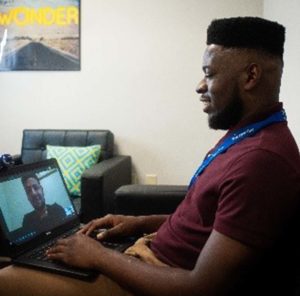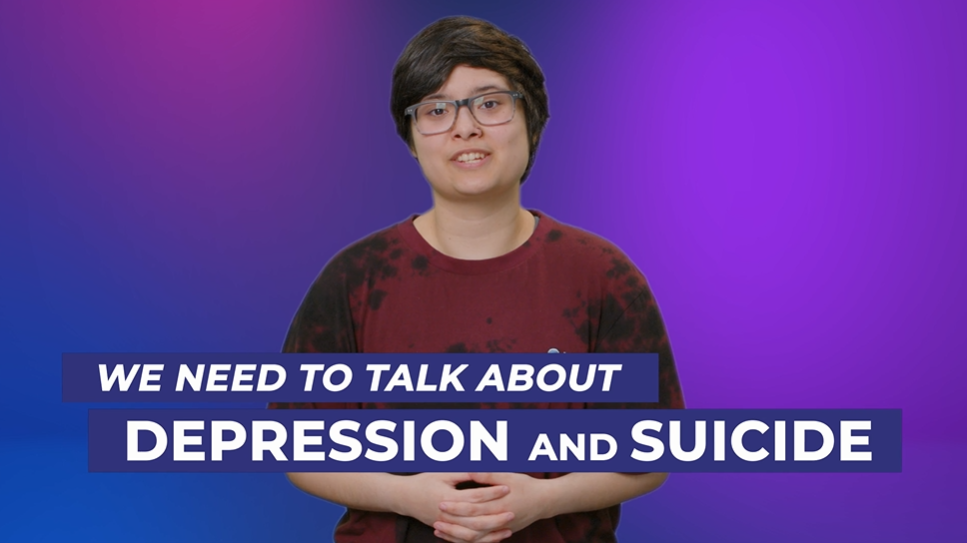TRANSPARENCIES
a monthly newsletter from Integral Care
a monthly newsletter from Integral Care
May marked the end of the regular 87th Texas legislative session, with a special session currently underway. The last year and a half have been a collectively challenging time for our communities and a shining example that policy matters. The cumulative impact of the pandemic has led to increased behavioral health needs across the country – for both adults and children. Texas legislators responded to the need for significant solutions to improve access to services. Through legislative action, they appropriated $8.44 billion to behavioral health across 25 state agencies, an increase of roughly $350 million over the previous biennium. Let’s take a look at the wins from this session.
Telehealth flexibilities allowing easier access to behavioral health services
Better access to mental health care in the primary care setting
Addressing the well-being of children and youth
Maintaining and increasing funding for key areas impacting our local community
Streamlining Substance Use Treatment Process
We appreciate our legislators for their hard work and continued dedication to behavioral health. Read more in our End of Session Report, which highlights additional behavioral health legislation passed this session.

David Evans
Chief Executive Officer
Texas Child Health Access Through Telemedicine
 Created by the 86th Legislature, the Texas Child Mental Health Care Consortium (TCMHCC) spent its first year launching initiatives through 12 health-related institutions of higher education across the state to address urgent mental health challenges and improve the mental health care system in this state in relation to children and adolescents. This session, the state legislature saw the value of the consortium and increased funding to continue key initiatives and maintain systems of care for Texas children.
Created by the 86th Legislature, the Texas Child Mental Health Care Consortium (TCMHCC) spent its first year launching initiatives through 12 health-related institutions of higher education across the state to address urgent mental health challenges and improve the mental health care system in this state in relation to children and adolescents. This session, the state legislature saw the value of the consortium and increased funding to continue key initiatives and maintain systems of care for Texas children.
The Texas Child Health Access Through Telemedicine (TCHATT) initiative gives schools access to health providers via telemedicine and telehealth to help meet the mental health needs of children and adolescents. Dell Medical School is one of the health-related institutions of higher education included in the TCHATT program, with an interlocal agreement with Integral Care, to provide student mental health evaluations, ensure smooth linkage to ongoing services and consultation and trainings for teachers. TCHATT clinicians include Dell Medical School’s child and adolescent psychiatrist and psychologist and other licensed mental health professionals.
The social isolation and psychosocial stress of the COVID-19 pandemic has taken its toll on children, adolescents and families struggling with mental health concerns. The mental health sequelae of this pandemic are likely to affect our community for years to come. TCHATT has been a wonderful community collaboration and service that has allowed us to meet the acute and chronic mental health needs of our community within the school setting. To date, we have provided over 2,000 telehealth appointments to 549 unique students. We are grateful for the continued support of the Texas legislature as we look to continue and expand the scope of our program within Central Texas. – Roshni L. Koli, MD, Medical Director, Pediatric Mental Health, Dell Children’s Medical Center
TCHATT is a free telemedicine program provided through our collaboration with Dell Medical School, school districts and primary care providers. The program can be utilized whether a student is on campus or in distance learning at home.
Integral Care has also successfully collaborated with the University of Texas School of Psychology to bring on interns and externs for supervision to this experience. This expanded commitment to TCMHCC and early identification and treatment for mental health issues demonstrates Texas’s continued commitment to children’s mental health and well-being.
Share Our New Teen Suicide Prevention Videos!
 Suicide numbers for ages 10-24 have been on the rise since 2007. We hope you’ll share our hopeful new videos with your network. One video is for teens, the other for a parent/teacher audience. Both are in English and Spanish. The videos dig into the warning signs and how to reach out for help.
Suicide numbers for ages 10-24 have been on the rise since 2007. We hope you’ll share our hopeful new videos with your network. One video is for teens, the other for a parent/teacher audience. Both are in English and Spanish. The videos dig into the warning signs and how to reach out for help.
According to a CDC report released in June, emergency department visits for suspected suicide attempts rose among 12 to 25-year-olds between January of 2019 and May of 2021. Among girls 12 to 17, average weekly visits to the emergency department for suspected attempts from February 2021 to March 2021 was 50.6% higher than the same period a year prior. Among boys of the same age, the increase was 3.7%. It’s important to note that these were attempts, and CDC data for actual suicides in 2020 has not yet been released. Until that data is released, it is unclear the effect of the pandemic and racial reckoning of the past year and a half.
We’d like to thank the Moody Foundation for the generous grant to create these videos. We hope you’ll share them with friends, colleagues, perhaps your child’s school or other organizations.
Foster Children Deserve a Safe Landing
A foster child and foster family can be successful with the right support at the right time. Safe Landing was launched two years ago in response to the state’s foster care crisis – not having enough foster homes thereby leaving youth to live in Child Protective Services (CPS) offices. The program was created with the support of Travis County and Mission Capitol with the goal of increasing the number of foster homes that can care for youth with complex behavioral health needs.
Safe Landing’s first phase built relationships with child placing agencies, providing intensive clinical and case management support to their foster youth and families. The program offers in-home child and family counseling, parent coaching, help creating a safety plan and mental health crisis response. Children recently placed in foster care may have complex behavioral health needs which require prompt attention and the right therapeutic interventions.
“A lot of our kids would be in a different place without them. We need therapists who can see the child within 24 to 48 hours, or we could be looking at a crisis situation. Before this program there could be as much as a 4-month wait to get an assessment with a therapist. Safe Landing staff bridge what was a gap in the system.” – Samantha Schwartz, Program Manager, DePelchin Children’s Center
In addition to stabilizing crisis situations, our therapists provide a quick connection to psychiatric services, ongoing therapy for the child and tools for the parent to build their bond. Addressing past trauma and building trust and attachment is the recipe for success. Ms. Schwartz describes a 9-year-old child with serious behavioral struggles who had the potential to bounce around the foster care system. With a Safe Landing therapist’s ongoing help, that child and foster family are signing adoption paperwork.
The number of youth living in CPS offices, known as “Children without Placement”, started to increase again in 2021. Safe Landing is a key collaborator with Travis County Child Protective Services, Texas Department of Family and Protective Services and other foster care community organizations such as Partnerships for Children, Foster Angels and Casey Family in supporting these children. They help the youth stabilize and transition to a more permanent placement. Recently a Safe Landing therapist provided crucial support for a teenager without placement quarantining in a hotel isolation facility for COVID-19. Our therapist made daily clinical check ins and provided vital emotional support until the youth could be released from quarantine and placed in a family setting.
In 2 years, the program has helped 61 children. As we move into year 3 of the program, our goal is to reduce the number of children living in CPS offices by providing intensive support to foster families, so they feel confident in caring for children with complex behavioral health concerns. A big thank you to our collaborators – together we are making a difference and helping children and families achieve health and well-being.
Back to School Tips
For you parents out there, our school-based therapist team suggests these 10 tips to support your child’s mental health. Download the pdf, print it and post it on the fridge.
July 2021: Creating Lasting Change for BIPOC Mental Health
June 2021: Facts & Resources This Pride Month
May 2021: Mental Health Month
April 2021: How do we help Austinites experiencing homelessness?
March 2021: Growth and Positive Change
February 2021: How Do We Create a Better Future?
January 2021: Looking Ahead to the Legislative Session
December 2020: Supporting Your Mental Health This Winter
November 2020: How do we rebuild health and well-being during a pandemic?
October 2020: With Collaboration Comes Innovation
September 2020: Success Stories of Recovery and Suicide Prevention
August 2020: A Back to School Season Like Never Before
July 2020: Minority Health Disparities & COVID-19
June 2020: Stronger Together
May 2020: Surviving and Thriving During Uncertain Times
April 2020: Persevering During COVID-19
March 2020: Collaborations and Initiatives to Improve Health for the IDD Population
February 2020:Solutions to Health and Health Care Disparities
January 2020: Sucicide Prevention a Local Effort
December 2019: A Year of Thriving Care & Collaboration
November 2019: Teamwork and Collaboration Impact Homelessness in Travis County
October 2019:Making Strides for World Mental Health
September 2019: Taking Steps to Recovery Support
August 2019: Working Together for Child & Youth Mental Health
July 2019: Legislative Wrap-Up – Some Bipartisan Wins for Healthcare
June 2019: Strengthening Access for Veterans and the Entire Military Family
May 2019: Women and Mental Health
April 2019: Legislative Session Status Report
March 2019: Making Opportunities for Recovery More Accessible
February 2019: Recovery is Possible
January 2019: Stronger Outcomes Through Collaboration
December 2018: Looking ahead to the 86th Texas Legislature
November 2018: How Tech is Changing the Face of Mental Health
October 2018: A Few Questions Could Help Save a Life
September 2018: Anyone Can Save a Life
August 2018: A Milestone Moment
July 2018: Equity in Mental Health Care for All
June 2018: Expanding Services for Veterans
May 2018: Your Mental Health Toolkit
April 2018: Time of Terror Calls for Increased Emotional Support
March 2018: Stopping the cycle of incarceration for individuals with mental illness
February 2018: Equity in mental healthcare for everyone
January 2018 : Improving Mental Health Through Partnership & Collaboration
December 2017: Strength Through Community
November 2017 : Healthy Lifestyles Improve Well-Being
October 2017 : National Child Health Day
September 2017 : Strengthening Families and Communities